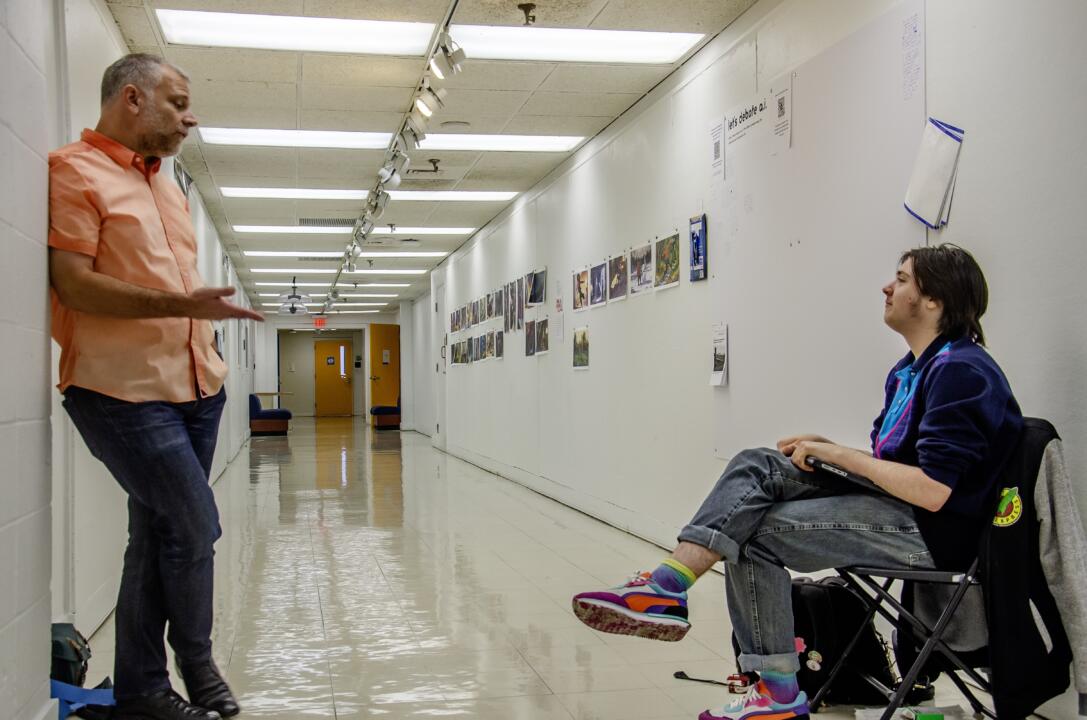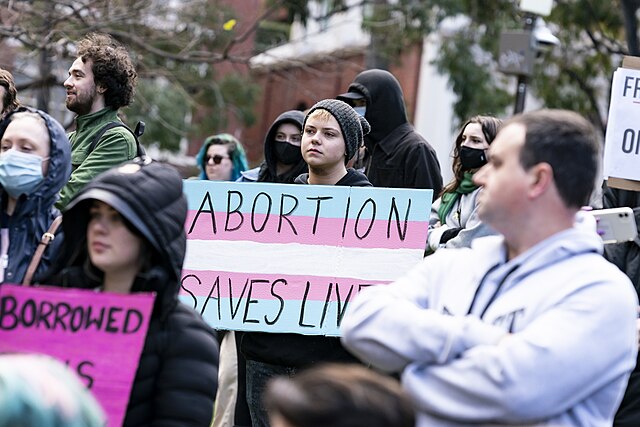University of Maryland, Baltimore County freshman biology major Sade Weaver-Wells paced about her dorm room in Patapsco Hall, worrying whether she packed enough. She had just received the call from Residential Life saying that she had tested positive for COVID-19 and needed to move into isolation housing within the next few hours. As she wondered what her symptoms would be like, Weaver-Wells threw her stuff into her car and drove over to the apartment she would be staying in for the next 11 days.
Weaver-Wells’ isolation apartment was empty and quiet. The living room furniture, bare twin XL mattress and other bedroom furniture were the only things that occupied the space besides Weaver-Wells’ and her bags.
“At first, it was like ‘Oh, I have this nice place all to myself!’ I’ve always dreamed of having my own place,” said Weaver-Wells. “But then I started to get miserable. My symptoms got a lot worse, and I hated being by myself. I wanted someone to tell me I’m going to be fine.”
Weaver-Wells only felt more lonely when her mom came to drop off groceries and medication to help with her shortness of breath. Unable to leave her apartment, Weaver-Wells and her mom talked through the apartment front door and windows.
Besides shortness of breath, Weaver-Wells felt nauseous and worn out. With so little energy, she struggled to do her coursework. She explained that completing one assignment left her drained.
“It’s difficult mentally to be sick with something so scary and also keep up with your schoolwork,” said Weaver-Wells.
Like Weaver-Wells, COVID left freshman mechanical engineering major Tami Akinde fatigued with little motivation to do work.
Despite explaining her situation to professors, Akinde felt they were not accommodating. While she did not want to use COVID as an excuse, she wished her professors gave her more extensions. The day she received her positive results and moved into her isolation apartment, she had a quiz and homework assignment due. Despite explaining her circumstances, the professor only gave her an extra day for the homework.
“I just thought teachers would be more understanding than they were,” said Akinde.
Akinde said that part of the lack of motivation came from the extended isolation. With her only source of interaction coming from FaceTime, text messages and social media, Akinde hardly felt like doing anything besides eating and sleeping. She said it felt like when she first quarantined in March after the appearance of COVID-19 in the U.S.
“It was depressing,” said Akinde.
Freshman computer science major Jacques Vaughan did not struggle as much with loneliness as with feeling cooped up.
“Mentally, you’re locked up,” said Vaughan. “You’re sitting in an apartment that’s pretty much empty. You have a couple of your things in there [but] all you really have is music, Netflix and that’s really it.”
Vaughan also had trouble with professors accommodating for the mental and physical fatigue of COVID-19 and the isolation process. Vaughan said each of his four professors still expected him to keep up with his coursework. Vaughan explained that he tried his best, but ended up taking zeros on some assignments because he was too tired to do the work.
“I didn’t want to be super behind, but it was also to the point where I wanted my teachers to understand what was going on,” said Vaughan.
In addition to classes, Vaughan had issues with the food provided to him. He explained that lunch was at noon and dinner was served between 5:30 and 6 p.m. Breakfast for the following day came with dinner. Besides these times being inconvenient for Vaughan, he also stated that the portions were too small.
“I honestly eat five times a day,” said Vaughan. “We only got three meals a day, and it’s really small portions too.”
Because of the lack of food, Vaughan said he spent a lot of money on Doordashing food to his isolation apartment. Weaver-Wells also said she spent around 80 dollars on Doordash throughout her isolation.
However, unlike Akinde and Weaver-Wells, Vaughan stayed in isolation for over 12 days. Vaughan was initially placed in quarantine for coming into contact with someone that tested positive. To be released from quarantine, UMBC requires students to test negative after five days. However, the university lost Vaughan’s test, forcing him to take and wait for another test. Once his second test came back positive, his isolation period was reset to 10 days despite the fact that he had already been in quarantine before the test.
This was not the only time Vaughan dealt with negligence and poor communication from the university.
Vaughan explained that the process of getting out of isolation was confusing. To be released from isolation, students would receive a discharge phone call from Maryland COVID Alert. However, it was then up to Vaughan to notify Residential Life that he could be released and ultimately find out exactly what date and time he could return to his dorm room. Vaughan stated it was difficult to get a hold of Residential Life and the university’s COVID team.
“The school doesn’t email you anything. They don’t check on you,” said Vaughan. “They don’t give you any updates, so you know you have this many days left. They don’t really tell you that much.”
With so little communication, Vaughan felt UMBC was locking him away until he was no longer contagious.
“It was just like they threw you in an apartment and said, ‘Stay here. You don’t need nothing else,’” said Vaughan. “It’s understandable because it’s the university, and they have all these students. It’s understandable, it’s what you have to do, but you could have taken care of us a little bit more.”
Akinde and Weaver-Wells also said the university left them on their own. Akinde described how difficult it was to get an answer whenever she would call Residential Life or email COVID-19 housing.
“Once we got in, we were on our own. Nobody communicated, nobody talked to us,” said Akinde. “There wasn’t much comfort from the university itself. We didn’t really hear from anybody.”
Akinde explained that she stayed almost an extra day in isolation housing after she received her call from MD COVID. When she called Residential Life saying she had gotten the call to be released, Residential Life said they had no record of her approval. Akinde then had to call University Health Services to see if they had received her release from MD COVID. It was not until 6 p.m. that Residential Life told Weaver-Wells there was a mistake and that she could leave.
Weaver-Wells was frustrated with always needing to initiate conversations with UMBC.
“There was just not too much communication and checkups which would have been very helpful to be like ‘Okay, the school actually cares. They’re not just throwing us in here because they have to, but because they have to make sure we’re okay and everyone else is okay,’” said Weaver-Wells.
Despite the frustration, lack of motivation and loneliness the freshmen dealt with over those 10 to 12 days, the feeling of being released from isolation housing made it all fade into the background for a brief moment.
“Leaving was probably the best thing to happen to me in the past couple of months,” said Vaughan. “[The walk to the parking lot] felt mentally freeing and physically freeing.”

